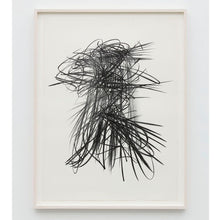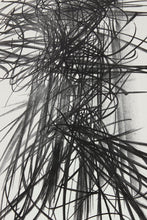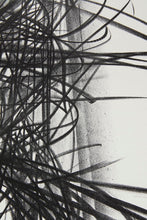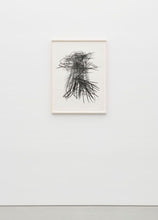Produced by the artist and Erker-Press Saint-Gall, 1963
Lithograph (pencil) on BFK Rives vellum paper
Image size: 60 x 52.4 cm | 23.62 x 20.62 in
Sheet size: 76.5 x 56.5 cm | 30.1 x 22.25 in
Frame size: 82.5 x 62.25 cm | 32.5 x 24.5 in
Edition of 75
Numbered in graphite, stamped by the Hartung Foundation
This print is available without frame. To inquire about framing please contact storeny@perrotin.com
About the artist:
Hans Hartung achieved international recognition as a seminal figure of art informel, which arose in France during World War II. Beyond the apparent spontaneity of his distinctively bold and almost calligraphic gestural abstraction, rationalism equally informed his style, which arose out of an early interest in the relationship between aesthetics and mathematics—particularly the harmony of the golden ratio—but also out of necessity: early in his career, he meticulously squared up his successful abstract sketches in order to reproduce them on larger canvases, which he could not afford to risk losing to improvisation. The Grand International Prize for Painting, which he won at the 1960 Venice Biennale, marked a decisive turn in his practice. Hartung began improvising directly onto canvas and experimenting with new media, namely fast-drying acrylic and vinyl paints, as well as scraping and spraying techniques. The quest for balance between spontaneity and perfection remained at the core of Hartung’s painterly aesthetics until the end of his life, in 1989.








